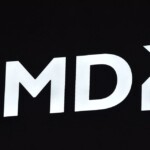When one has the ability to communicate with ChatGPT through thoughts, the need for typing on a traditional keyboard becomes obsolete. Thanks to advancements in artificial intelligence (AI) driving brain-computer interface (BCI) technologies, what once seemed like a concept from futuristic science fiction has now become a reality. The unveiling of the non-invasive visual BCI by MindPortal Inc. has revolutionized the way individuals can interact with ChatGPT, the AI-powered language model developed by OpenAI.
This groundbreaking development marks the first instance of establishing secure telepathic communication between individuals and artificial intelligence. Ekram Alam, the CEO, and co-founder of MindPortal, emphasized the significance of this achievement in enabling psychic interaction between humans and AI, thereby ensuring the coexistence of civilization with artificial intelligence. Jack Baber, the CTO, and co-founder, echoed this sentiment, highlighting the milestone it represents for the brain-computer software market.
Brain-computer interface devices are systems that monitor brain signal activity in real-time, translating electrophysiological signals into user-intended commands to operate external devices. These neurotechnology tools, empowered by artificial intelligence, offer hope to individuals with disabilities by allowing them to control external devices using their thoughts, operate mechanical limbs through speech synthesizers, manipulate computer cursors, and perform various other tasks.
BCIs can range from invasive to non-invasive treatments. For example, Neuralink, a neurotechnology company founded by Elon Musk, specializes in an invasive implant brain-computer interface that requires surgical insertion.
The distinguishing feature of the MindPortal solution lies in its utilization of a non-invasive visual sensor BCI, leveraging the pattern recognition capabilities of AI machine learning to convey complete sentences in real-time rather than individual words.
Market research conducted by Grand View Research estimates the brain-computer interface market to be valued at USD 2 billion in 2023, with projections to reach USD 6.2 billion by 2030, exhibiting a compound annual growth rate (CAGR) of 17.5% from 2022 to 2030. With a significant number of clinical studies underway and the escalating prevalence of neurodegenerative disorders, North America is expected to dominate the market share, accounting for nearly 40% in 2022.






